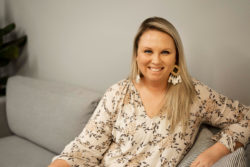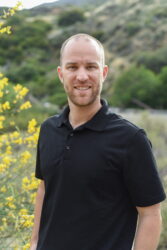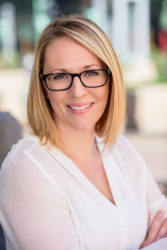Current CDC statistics state the following reality kids today face:
- 8.6% of kids struggle with asthma
- 11% diagnosed with ADHD
- 1 in 6 kids have developmental disabilities
- 40% suffer from allergies
- 1 in 68 diagnosed with autism and rising fast
Why is it so bad now, compared to when I grew up?
Thankfully parents of this generation are starting to wake up and ask questions like: Why is it so bad now, compared to when I grew up and only 1 or 2 kids in each class had things like allergies and ADHD? What is causing all these issues to explode?
And perhaps the most important question – what is being done about it?
perhaps the most important question – what is being done about it?
Well let’s start by answering that last question first. Truthfully, much of the same things we’ve tried for decades, and it’s not working very well. In short, more kids than ever get diagnosed with all these conditions, and in turn more kids than ever are being prescribed drugs to treat them.
Which brings about another root issue and question we get asked all the time – are the drugs really getting to the root cause of all these issues, or are they merely trying to cover up the effects (symptoms)?
- Got a fever – take Tylenol and bring it down
- Allergies and congestion – take a decongestant and steroid-based drug to cover it
- Can’t sit still and concentrate – take a stimulant medication
- Respiratory challenges – here’s an antibiotic and an inhaler
Here’s the reality we face today as parents – We have the most incredible health care system in the world when it comes to life-saving, crisis and emergency intervention. But in turn, we have perhaps the most inadequate and expensive system in the world when it comes to helping kids with chronic health challenges and disabilities.
Our current dominant system has always been focused on symptom treatment, instead of where it really should be, system repair.
If a child struggles with challenges such as autism, ADHD, and sensory processing disorder what they really need is evaluation and care of their central nervous system, the place those challenges are rooted.
Chronic immune and gut issues should be dealt with by improving the function of those systems themselves, rather than stuffing their symptoms. We need to make these systems work better by “boosting” them rather than doing the job for them, in the way of daily medication use.
It’s Rare That a Child Will “Grow Out Of It”
The common thing parents are told still today is that kids will “grow out of it” in time. That’s another thing that must absolutely change.
After nearly a decade of clinical experience caring for kids with chronic neurological and immune challenges, it’s rare that a child “grow out of it” but instead common that it simply changes form.
- Colic and reflux issues in a newborn often become chronic ear infections and respiratory challenges.
- Frequent ear and sinus infections, with frequent antibiotic use, turns into allergies and asthma
- Speech and motor challenges turn into behavior and emotional issues
Turning in the Other Direction With Our Health Care Choices
For seven years, we have referred to all this as the “perfect storm” and its got to change. If we keep taking the same path with pediatric and family health care and lifestyle, we’ll keep getting more of the same results. Every single study shows that unequivocally. These issues are all on the rise, and certainly not on the decline.
In order to turn them around and get them headed in the other direction, we need to strongly consider turning in the other direction with our health care choices. Often times when parents call the practices of our NWF Providers for help, they tell them they’re their “last resort” and “last hope” for their child. They’ve been everywhere – the pediatrician, neurologist, ENT, immunologist, geneticist, Lutheran, Rush, Children’s, Mayo, etc.
And most every time, Providers are the first people to give them what they’ve been seeking all along, real answers and explanations as to what’s causing their child’s chronic health issues, and then most importantly, options for care that are drug-free and effective.
I’ll finish up by getting straight to my point – it’s time for a change. It’s time we focus on the system, instead of just the symptom.
If you’re child struggles with health challenges of any sort, or if your goal is to never have them go down that road, consider consulting a trained Pediatric and Family Chiropractor first, not last. It just may be what changes your life!
Article originally posted on Premier Wellness Chiropractic’s blog
 Dr. Tony Ebel is a pediatric and wellness certified chiropractor, who specializes in neuro-developmental disorders such as autism, ADHD, sensory processing disorder, seizure disorders and other special needs cases. He has extensive education, experience, and passion in these areas, and has a large family practice in Crystal Lake, Illinois, serving this population, as well as general family wellness. He holds post-doctorate certifications in pediatrics and wellness, and also has hundreds of hours of continuing education and training in the areas of autism, ADHD, sensory challenges, seizures, neuro-immunology, and other pediatric topics.
Dr. Tony Ebel is a pediatric and wellness certified chiropractor, who specializes in neuro-developmental disorders such as autism, ADHD, sensory processing disorder, seizure disorders and other special needs cases. He has extensive education, experience, and passion in these areas, and has a large family practice in Crystal Lake, Illinois, serving this population, as well as general family wellness. He holds post-doctorate certifications in pediatrics and wellness, and also has hundreds of hours of continuing education and training in the areas of autism, ADHD, sensory challenges, seizures, neuro-immunology, and other pediatric topics.
Dr. Tony now frequently travels throughout the country as well as internationally, providing his Perfect Storm lecture and seminar to other chiropractors, staff, and related professionals, and also has done over 100 public/parent lectures on this topic and others. He has been a featured presenter at the world’s largest autism seminar, Autism One, held each year in Chicago.
He has a beautiful wife Kristina, three incredible daughters, Addison, Alaina and their latest addition, Emilia, and an amazing little boy Oliver who himself went through “the perfect storm” spending 6 weeks in the NICU with a very grave prognosis of lifelong epilepsy, autism, and severe developmental delays. However, thanks to the early application of chiropractic care, Oliver never had a single seizure, or a single delay, and today is a vibrant and healthy 6-year-old stud! Dr. Tony is a health and wellness “junkie” who loves CrossFit and juicing, spending time with his family, and sports.










